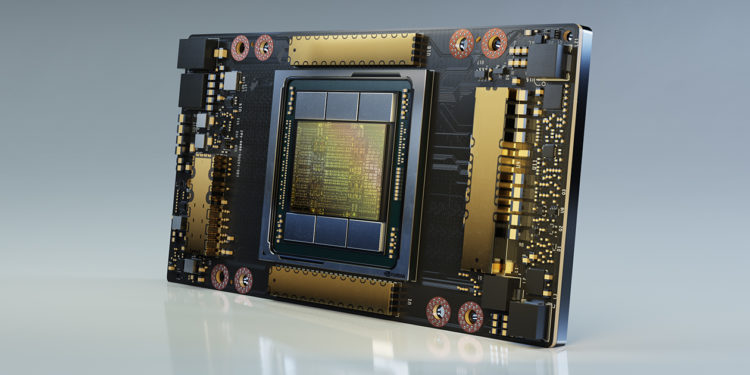TED NewsDesk, New Delhi: Indian Institute of Technology, Jodhpur (IITJ), one of the leading technical institutions of India, on Thursday announced the receival of Artificial Intelligence Supercomputers. The Central Computing Facility systems will have NVIDIA DGX A100 installed in all the units along with the School of AI and Data Science at IITJ, the first institution in the country to set up AI machines.
NVIDIA is a US-based firm which will provide IITJ with highest quality AI Supercomputer. All the departments and courses at the college will have the DGX-2 framework, with machine Learning serving as its significant category.
NVIDIA DGX A100 stands as the only system advanced with all workloads of AI. It enables extraordinary compute density, flexibility and performance, ranking in the first five petaflops AI machine of the globe. Further, it offers the NVIDIA A100 Tensor Core GPU, one of the highly developed accelerators of the world. As a result, the companies have the provision of a uniform and unchallenging AI framework by integrating inference, training and analytics. Besides, they facilitate accessibility to NVIDIA AI professionals without any third-party intervention.
IITJ holds an enlarged background of primordial research mainly concerned with Computer Science and Engineering, Healthcare, Humanities and Social Sciences, Mathematics, Chemistry, Physics, Bioengineering or Biosciences, Smart Healthcare, Electrical Engineering and Metallurgical & Materials Engineering. With the provision of DGX A100 systems in the campus, it will be easy for the candidates to carry forward almost 96 active research assignments. The institute stated that the core users of the systems would constitute students from BTech programmes with Data Science and AI as a part of the syllabus.
The initiative aims at identifying and lubricating ideas related to AI, Computer Vision, IoT, ML, Sensors, Control Systems, Autonomous Systems, Cyber-Physical Systems, Robotics, Smart Health, Smart Cities, Bioinformatics, Drug Discovery, Data Analysis and so on.
“AI has the potential to solve some of humanity’s greatest and most complex problems. However, with ever-increasing big data and the need for faster time to discovery, AI infrastructure is critical to success. NVIDIA’s DGX A100 systems will greatly augment our AI supercomputing Facility and bring to our students & research partners the very best AI technology to help them succeed and be the best in the industry” said the Director of IIT Jodhpur, Prof. Shantanu Chaudhury.
Mr Chaudhary had outlined that these Supercomputers will help in the development of infrastructure along with other fields. He also informed about the plan of the enterprise to assist IITJ for three years to train them in using these technologies through different workshops. He added that the step would enable students and the authorities to understand and operate these technologies.
Vishal Dhupar, Managing Director, South Asia, NVIDIA stated, “The fundamental research IIT Jodhpur is engaged in will help solve the everyday challenges of 1.3 Billion Indians. We congratulate IIT Jodhpur on being our first DGX A100 customer in India and believe that these systems, as part of their AI CoE, will help them find the fastest time to solution in AI Research.”
In 1999, NVIDIA released the GPU which gave rise to the PC gaming market, reviewed modern computer graphics and revolutionized parallel computing. Moreover, modern AI- the next era of computing- paved its way through GPU in-depth learning with the GPU as the brain of the system, robots and automatic cars having senses and discernment.
“It is the fastest and most powerful Supercomputer of its kind in the world for artificial intelligence applications that have come to India for the first time. It has been put here in a special laboratory.” said Mr Singh, Chairman, Department of Computer Science, IITJ.
The country received its first Supercomputer under the MoU signed by IITJ and NVIDIA with a two-year agreement for AI-based research. The DGX-2 is double in the capacity as compared to DGX-1, which is already available in some educational institutes in India.








